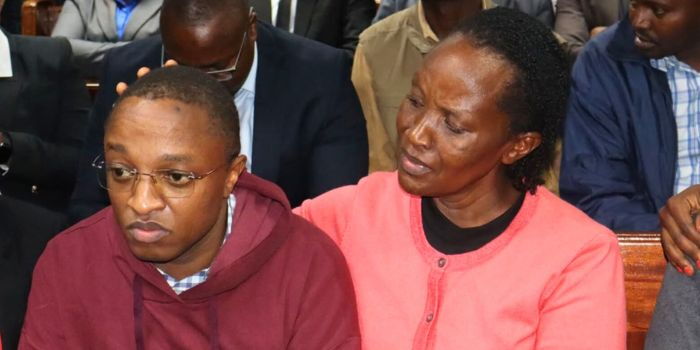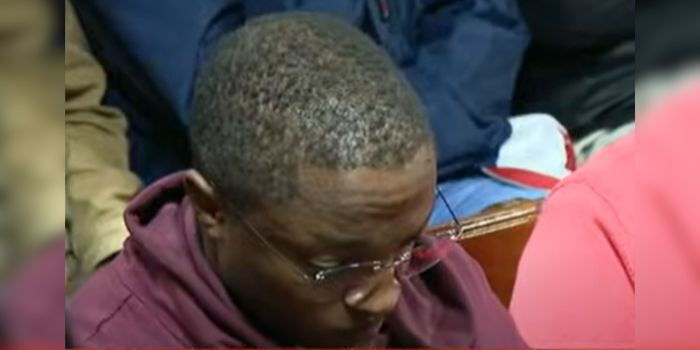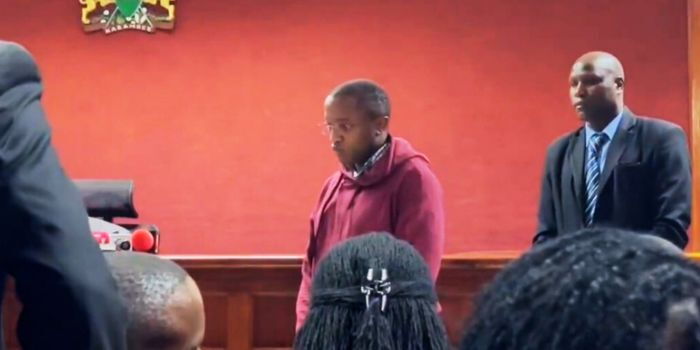The High Court has issued an order barring the police from arresting blogger and activist Ndiangui Kinyagia until July 18, as a cloud of controversy continues to swirl around his mysterious 13-day disappearance.
Justice Chacha Mwita ruled that Kinyagia be given time to receive medical attention and reconnect with his family, who appeared tight-lipped over the recent developments. The ruling follows increasing public pressure and social media uproar, as many Kenyans remain unconvinced by the narrative surrounding Kinyagia’s reappearance.
The activist, known for his hard-hitting posts and political commentary, resurfaced on Tuesday, July 2, contacting a family member from an undisclosed location. His family lawyer, Wahome Thuku, revealed the development on Facebook, stating that Kinyagia was “alive, healthy, and safe,” but had gone into hiding after allegedly learning that DCI (Directorate of Criminal Investigations) officers were pursuing him.
“He contacted the family from an undisclosed location. He went into hiding because he feared for his life. The police had broken into his house, which is already in their affidavit,” Thuku explained.
However, Ndiangui’s dramatic court appearance on Thursday, July 3 sparked fresh debate. Video footage showed him subdued and withdrawn, wearing a maroon jacket and appearing visibly shaken. But what truly caught the public’s attention was his physical appearance, his hair was shaved, a stark contrast from previous photos where he wore a full afro.
This change has led to speculation that Kinyagia may have been abducted and forcibly shaved, a symbolic act often associated in Kenya with humiliation or identity erasure by rogue state operatives.
As conflicting reports emerged, a section of Kenyans accused Kinyagia of faking his own abduction. The criticism was fueled by claims that he orchestrated his disappearance to evade arrest and gain public sympathy, an allegation his legal team has vehemently denied.
Thuku responded with skepticism toward the self-abduction theory, challenging skeptics to explain why DCI officers were seen breaking into Kinyagia’s home if he had staged his own disappearance.
“If this was a self-abduction, then you must explain how DCI officers ended up breaking into his house. That’s on record and backed by police documents,” he said.
Despite this defense, public opinion remains sharply divided. Some see Ndiangui as a victim of state intimidation, while others feel misled and emotionally manipulated.
DCI Director Mohammed Amin denied that Kinyagia was in police custody but confirmed that he was a person of interest. The reason? A now-controversial post on June 25, where Ndiangui published what he called a “timetable”, which included a march to State House and the declaration of a new republic, moves the state has described as inflammatory and seditious.
Though Amin maintained the agency had no role in Kinyagia’s disappearance, his statement did little to silence speculation about covert arrests and disappearances, an issue that continues to haunt Kenya’s human rights record.
The case of Ndiangui Kinyagia mirrors an all-too-familiar trend in Kenyan politics: the murky line between law enforcement and political suppression. Whether or not Kinyagia was abducted, his case raises urgent questions:
Why did the DCI break into his home without formally charging him?
Why was he visibly shaken and shaved upon reappearance?
And why has the state failed to convincingly clarify his status during the time he was missing?
The imagery of a silenced activist, trimmed hair, and emotional disorientation echoes scenes from past regimes where dissent was met with covert retaliation. It reflects a growing mistrust between civil society and security agencies, particularly under the lens of recent anti-government protests.
If this was indeed a case of enforced disappearance followed by public denial, it underscores a dangerous rollback of democratic gains. If it was self-orchestrated, it complicates the narrative of victimhood and may undermine genuine cases of state abuse.
Either way, the Ndiangui saga highlights a system plagued by opacity, public paranoia, and the weaponization of both truth and propaganda.
The High Court has scheduled two mentions, July 18 and July 24, to further examine the case. In the meantime, Ndiangui will remain a free man under temporary court protection.
As the country awaits answers, Kenyans are left grappling with more questions than clarity: Was this a real abduction or a political performance? Who holds the truth, Kinyagia, the DCI, or neither?
For now, Ndiangui remains at the heart of a storm, symbolizing either a brave voice of dissent or a master manipulator of public emotions. But one thing is certain: this case is far from over.






